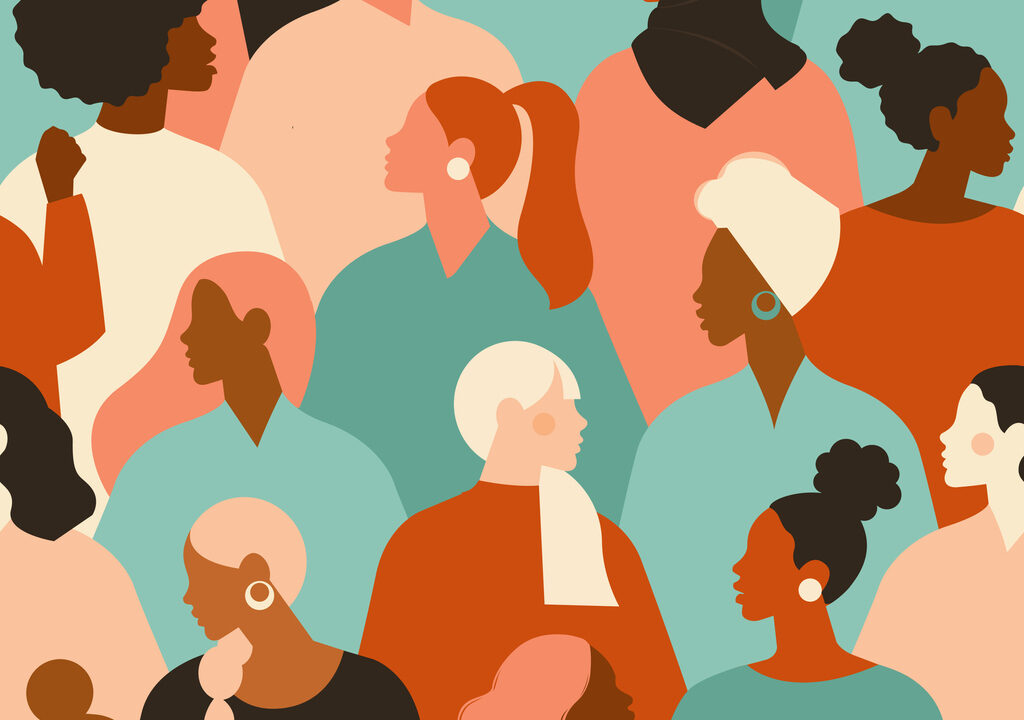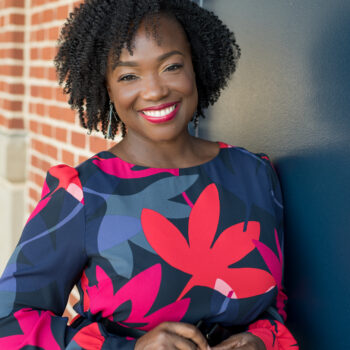What do women of color need to succeed as they step into positions of power? That’s the question that Karundi Williams frequently finds herself pondering. Williams is the executive director of re:power, an organization dedicated to developing BIPOC leaders. “As we elect more BIPOC candidates for office, particularly in hostile environments,” she explains, “it’s really important that our movement adapts to support their leadership.” In this roundtable, which has been edited and condensed, Williams talks with Danielle Walker, a member of the West Virginia House of Delegates, and Irene Godínez, the founder and executive director of Poder NC, about what it’s like to be the first BIPOC women in their positions, what’s allowed them to succeed in their roles, and what supports are still missing.
Karundi Williams: How does being the first BIPOC woman leader impact your leadership or your governing?
Danielle Walker: It allows my voice, which is the voice of my constituents, to echo not only in my district but throughout the whole state — in a state that is less than four percent Black. It allows different policies to be introduced, such as the CROWN Act [which would have banned hair discrimination] or the Katherine Johnson Fair Pay Act. Even if it goes nowhere, it allows me to have a platform where I can elevate all mountaineers. See, once you come through the borders of West Virginia, all kinds are welcome. Pain becomes power that morphs into progress.
Irene Godínez: I have to acknowledge that part of how I’ve been able to get to where I am is finding those people who were willing to make investments in me despite not having the credentials or experiences. It took other women of color and Black women because nobody else would take that chance except for us. I’m using this space as the first and only to widen the doors, to bring others along. It’s like we’re going to fill out this table; y’all didn’t know. There are days that are really hard because there’s also not enough support for us. I have been begging and looking for space for other BIPOC women who are in leadership because this is a very lonely space and there is so much pressure.
KW: I think about my role as a Black woman ED leading an organization that was majority white, previously white-led. It is so important and powerful to show up fully in spaces that aren’t used to us. We’ve earned a seat at the table, so how do we use that time and space to bring all of our voices, our ancestors’ voices, the voices of future Black women who will lead?
IG: When I see BIPOC women in leadership, it almost feels like people put us there to check something off a list, and they’re expecting us to fail. They’re expecting us to fail so that they can say, “This is why we can’t fuck with them.” When they see the opposite of that, I see the surprise in their faces because they actually weren’t expecting that level of success. I was recently talking to a legislator who’s a recruiter for the Democrats here. I recruited the first Latino to run for state legislature here in North Carolina and he won. The reaction was, “Oh, well, he just got lucky. The district was a lot more winnable than we thought, and we’ll see what he’s really made out of in 2022.” And I was like, “Man, that’s why y’all were pushing back on him five times because y’all said he couldn’t win, and now y’all are changing the narrative to say this is actually winnable, but you’re going to see that we’re going to bring it that much deeper so that you won’t say that this was a fluke.” It’s not even for them. It’s for us to have the confidence that we know how to organize. It is in our bones.
KW: All of our ancestors in Black and brown communities were organizers. It’s in our blood and in our veins, and we use organizing as a tool to elevate our people, to bring our people front and center. You don’t expect us to win, but, not only that, you’re setting us up to fail, and then we achieve despite that because it’s in our blood, because we’re organizers, because we’re bringing our ancestors’ names forward. Why are we even still talking about being first and only? Why are we even having this conversation?
IG: For the longest time, we’ve known that Black women are the backbone of the Democratic Party. But it’s one of the populations that gets least funded and least prioritized. There was recent polling that showed that, if people reached out to Latinas, we would be behind Black women as the other sure thing for the Democratic Party. For the longest time, funders and leaders of these movements were too scared to admit that they didn’t know shit about us and weren’t willing to take the risk on us.
Funders and traditional leaders can be pretty lazy about putting in the work. Last year, Poder NC was the only organization in the state to target unregistered but eligible-to-vote Latinas. We put money behind that; we sent them a mailer that was a love letter, we built a digital strategy. But no one else was willing to put money behind a population that could be the secret sauce. I kind of liken it to: you can’t marry somebody if you don’t date them. The Party is always expecting us to turn out and marry them, but they didn’t even talk to us. And so, we have to do that ourselves.
KW: Delegate Walker, what type of support did you not have that you wish you had when you were running?
DW: Security. In 2020, we had a Black Lives Matter movement like no other. And yes, it was diverse. But we also had threats. We need to talk about it and not shy away from it because it is a big deal. So, when I got my assassination threat…where we live, we don’t call the feds. We don’t fool with them folks. I didn’t know who they was going to send to my house. I didn’t want to call 911, but there was nothing else set up for me. I didn’t know what to look for when I had to stay in a hotel. These are the resources that we need, and I didn’t have it.
I also wish there was bias training. A lot of my volunteers, they would ask, “Where are all the other Black people?” I would look at them as if they had mud on their faces. “I am not your secretary and I am not your savior. I need you to go back and listen to some of those speeches I’ve given and get in those neighborhoods. Your children go to public school. Who are their Black friends? Do your children not go play with them? Do they not go to the park? Do you not talk to these people?”
And caregiving funding. I’m a single mother. My oldest son had narcolepsy, so that meant he needed rides everywhere. My youngest son has autism as a primary diagnosis, 28 other mental diagnoses that follow that. My mother, a breast cancer survivor, has had two open-heart surgeries, and now we’re up to 10 stents.
IG: It would have been helpful to have fundraising coaching. It would be helpful even now for me to have executive coaching. It would be helpful to have a cohort of other BIPOC women EDs with whom I can talk about challenging things. Even having people just checking in to affirm and to validate that I’m doing a good job because, when I’m doing a good job, I don’t hear anything from anybody; it’s only when I’m misstepping or making errors that suddenly everyone wants to talk to me.
I also would love for there to be some sort of a fund for BIPOC women EDs to be able to take a vacation without it being taxing on us because I am a single parent and I got to use my money in other ways. I am a whole-ass human being, and I also deserve rest because I will come back even more vivacious and ready to throw down.
Finally, I continue to do leadership recruitment for people to run for office, and what I need is for there to be some sort of a fund especially for BIPOC women who are running for office where the offices don’t pay. If we want retention and we want to create a deeper pipeline, then we need to have a separate fund to pay our leaders in a legally permissible way.
KW: What is the movement doing well in supporting these onlys and firsts, and how can we build upon what we’re currently doing to support your leadership?
IG: Something I would love to see more of is white women who are in leadership stepping out of the way to create space for more BIPOC women to step up. But when they step away, pass on your Rolodex. Pass on your funding people. Pass on some of the historic information that could be helpful. Pass on partnership information and which ones have been helpful and which ones haven’t been in order to actually set us up for success.
DW: The movement is creating a space where I can be an unapologetically Black woman, queer mother supporting disabled children, supporting a gay son. You’re uplifting me by sharing my truth. What I would like to see an uptick in is the education. We have these progressive marches and meetings. People are energized and they’re ready to go and they sit in their car or they get on the bus or they walk home and they go, “But I don’t even know when my city council meeting is. Well, I really don’t know what a county commissioner does.” We think about financial literacy a lot. I think it’s time that we start doing some democracy literacy and elevate those names that are not in our history books.

